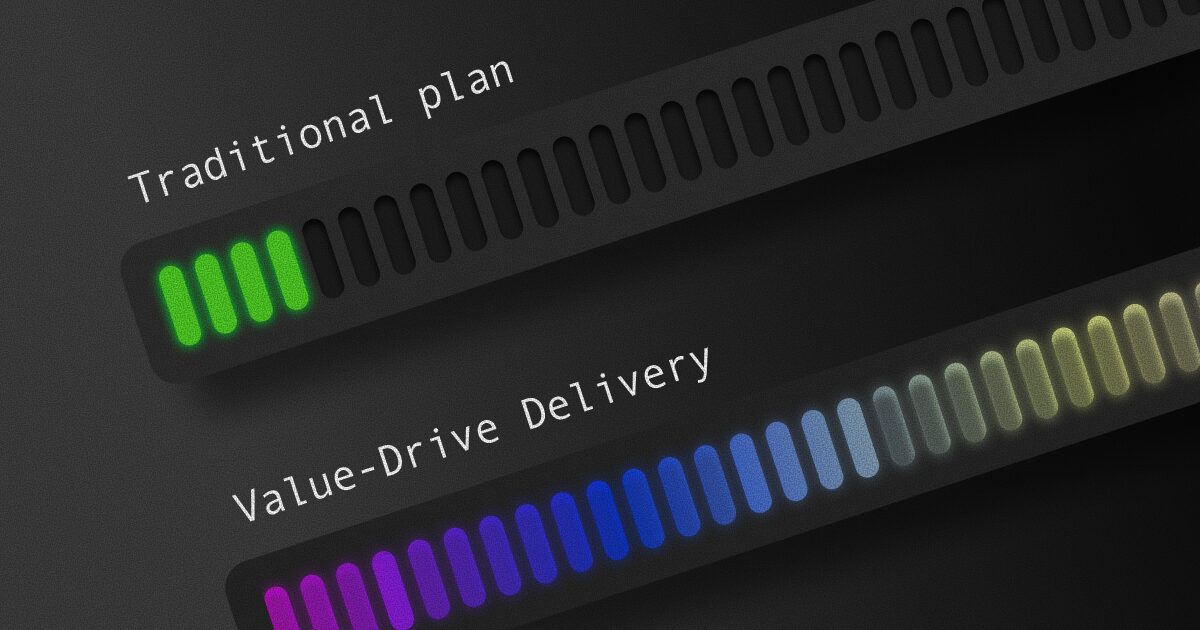October 30, 2025 - 6 min
Remote Work Setup — How to Build High-Performing Client-Agency Teams Anywhere

Remote work setup isn’t a trend, it’s a way how clients and agencies build great products together and create their own rules of collaboration. Both remote and hybrid ways of working have changed, and integrating teams across different time zones, cultures and companies has become completely natural.
Remote work allows agencies and clients to bring together the best people for their projects from all around the world. Those teams are formed around skills and shared goals. Teams that are managed in the right way can enable everyone to contribute to the overall outcomes.
Remote work didn’t just change where people work, it completely redefined what it means to be a team. It also redefined how they spend their free time and balance their personal lives with the professional ones.
What makes remote teams setup successful when people are often located in different parts of the world and different time zones?
Teams Diversity as a Key Driver
In the traditional teamwork, people were sitting in an office working together. But today many teams are distributed. Developers are in one country, and designers and BAs are in the other one. They don’t even need to be in the same continent to successfully collaborate together.
For agencies it is no longer a condition to have their people in the same city let alone the same office every day. They are able to create value regardless of where their people sit, because they rely on accountability, trust, and transparency. Instead of measuring teamwork by hours spent together, it is measured based on achieved progress.
Augmented teams, where agency experts work directly with client teams, have become a model that many agencies offer as their way of doing the business. Their biggest advantage of this model is team diversity which is possible because people come from anywhere in the world. Combining knowledge and mindset of people coming from different cultures is a great benefit for both clients and agencies. Diversity isn’t a challenge, it’s a source of creativeness.
But diversity alone isn’t enough, when it’s combined with the freedom of remote work, then everyone gets the benefit.
Advantages of Working Remotely
Remote work brings many benefits, such as flexibility and different focus areas. Productivity in remote teams often improves, since people spend less time commuting and more time doing the actual work. For some roles, like designers and engineers, remote work set up offers longer focus times, which is important when doing the creative work or fixing the issues.
The biggest advantage of remote work is the ability to balance every day life, regardless if it’s part of a professional or personal area. People can organise their lives in a way to finish the tasks when they have the highest focus and are most productive. For agencies and clients, that approach means higher engagement and better results.
Since remote collaboration also has some downsides, one of the things the teams need to learn how to overcome together is the distance.
Distance as a Challenge
Remote work gives freedom, but it also creates physical and emotional distance. Even though working remotely is becoming the first choice for many agency experts, there are also some challenges that agencies are aware of. Quick conversations during morning coffee or running into someone in the hallway and having a 5 minutes sync doesn’t happen, so agencies who are able to acknowledge these gaps and find ways to handle them quickly stand out as trusted partners.
It’s not about pretending the challenges don’t exist, it’s about setting up remote work around them so that client-agency relationship brings benefits to both sides. The best remote teams have virtual office hours, time and space for feedback, and regular team retrospectives. When everyone feels heard, the distance doesn’t play a crucial role any more.
Another way to keep connections between people alive is by having regular on-site gatherings, team buildings or occasional workshops when everyone comes to the office.
These in-person moments create and strengthen trust not just between people, but between client and agency, creating opportunities for future projects.
So how do teams stay aligned, connected and productive despite the distance?
The Tools That Make Remote Work — Work
There is no collaboration without tools, such as Slack, Miro, and Figma. But tools alone are not enough for collaboration. Agencies use shared practices, such as documenting conversations and presenting them back to the client to be able to visualise progress and align about milestones and next steps.
Agencies that are excellent in doing this can offer best skills regardless of where their people actually sit and work. Great agencies intentionally choose tools which make work visible.
Still, remote collaboration isn’t just about the tools, it’s about creating habits, trust and a shared way of working.
Technology may connect people, but culture keeps them together and successful teams work to keep both in sync.
Culture in Remote Teams
The reason why remote teams that achieve excellent results don’t just deliver work, they create relationships. When people know each other as individuals, they start trusting and looking at each other beyond the work they perform every day.
Remote culture is built on shared respect, empathy, and humor that happens in small talks even though people are on screens.
Even the strongest culture needs direction and that’s where leadership comes into play to lead and hold remote teams together.
The Role of Leadership in Remote Team Setup
Remote leadership isn’t about control, it’s about clarity and empowerment.
Agency leaders give people freedom to organise their day, while ensuring alignment with the client. Regular one-on-one replaces micromanagement, and people are free to share their achievements and concerns, and to ask for help if needed. This leadership style doesn’t just deliver outcomes, it attracts motivated and independent professionals.
Remote leaders ensure that no one feels left out and that people’s growth is a must, no matter where they are physically located. They lead by example, showing that empathy, ownership and integrity are the most important characteristics they need for quality leadership.
Leaders who understand both agency’s and the client’s contexts can manage expectations and ensure the partnership remains focused on outcomes.
What does remote work setup really look like in practice?
Q as a Remote-First Company
Remote work at Q isn’t a temporary setup, it’s part of who we are. Q is a remote-first company, attracting people from all over the country. People don’t need to live in a particular city or come every day to the office to be able to do their job professionally and with dedication. Q is focused on hiring the right people to do the right job regardless of where they actually are.
Even though we are very far away from clients, we work in collaboration and join different ceremonies and informal coffee meetings.
Being remote means we need to use cameras, because seeing each other helps us build trust and connection. Over time, those virtual meetings start to feel just as natural as working side by side.
The role of Q’s Experts
Q experts who are tasked to do research or analysis often present their findings and proposed solutions directly to client stakeholders regardless if they are their direct leads, delivery or engineering heads or members of the leadership team.
These sessions are not just about presenting the work, they are opportunities for Q to show that, even if we are not physically there, we can make an impact on different levels and we have knowledge and skillset that drives the agency-client relationship.
Since Q experts and client employees are located in different places, the human side of this partnership becomes very important. Everyone gets reminded every day that behind every screen is a real person with real character and humour.
Being a remote first company doesn’t just benefit clients, it benefits Q’s people too. We find the opportunity to work from anywhere a huge benefit. We can manage our families easier, have more time for personal tasks such as picking kids from school or going to the gym. Being flexible is the biggest advantage and that’s the reason why some put Q in the first place on their list of preferred agency choices.
Dedication, responsibility and professionalism is valued and respected in Q, so people who get to organise their lives the way that suits them, achieve better results and are more successful.
At Q, distance doesn’t mean disconnection. It’s just space between people and we at Q learned how to make it work in the best possible way.
Conclusion
For many agencies the remote-first model isn’t just a work setup, it’s a lifestyle choice for their people that allows them to coordinate their professional and personal lives in a better way. The hours they previously spent commuting now are used for exercising, cooking, learning, taking care of their kids or simply slowing down.
It improves the quality of lives of their employees, which further has an impact on the approach they take when working with clients.
For an agency, having a remote work setup is a competitive advantage. When collaboration is built on trust, transparency, and shared goals, distance doesn’t impact the potential of team delivery.
At the end of the day the most successful teams aren’t defined by where they work. They’re defined by how well they work together.
Give Kudos by sharing the post!






